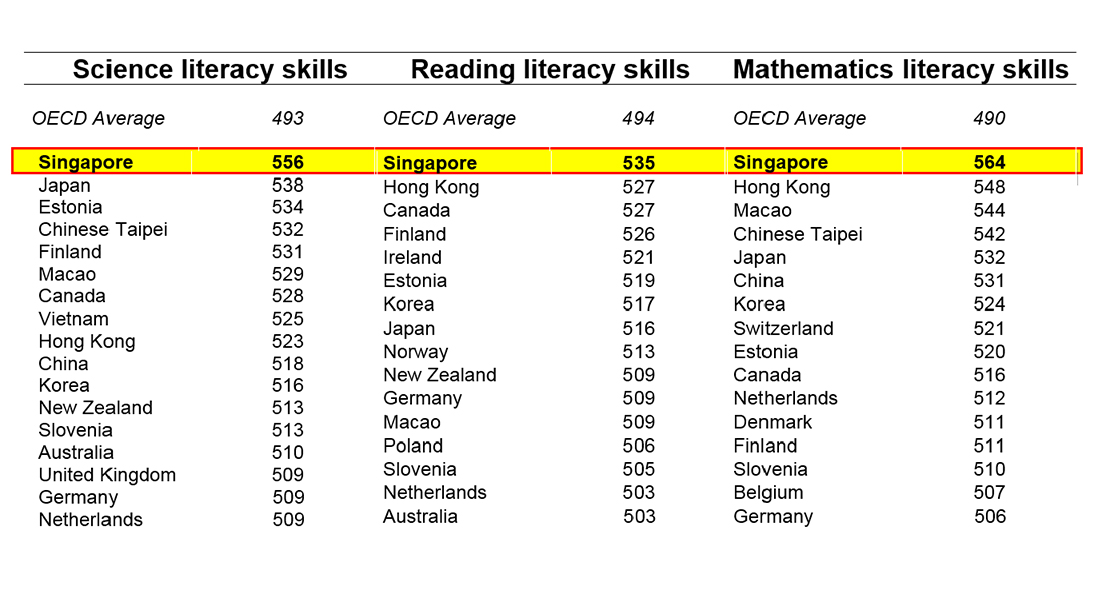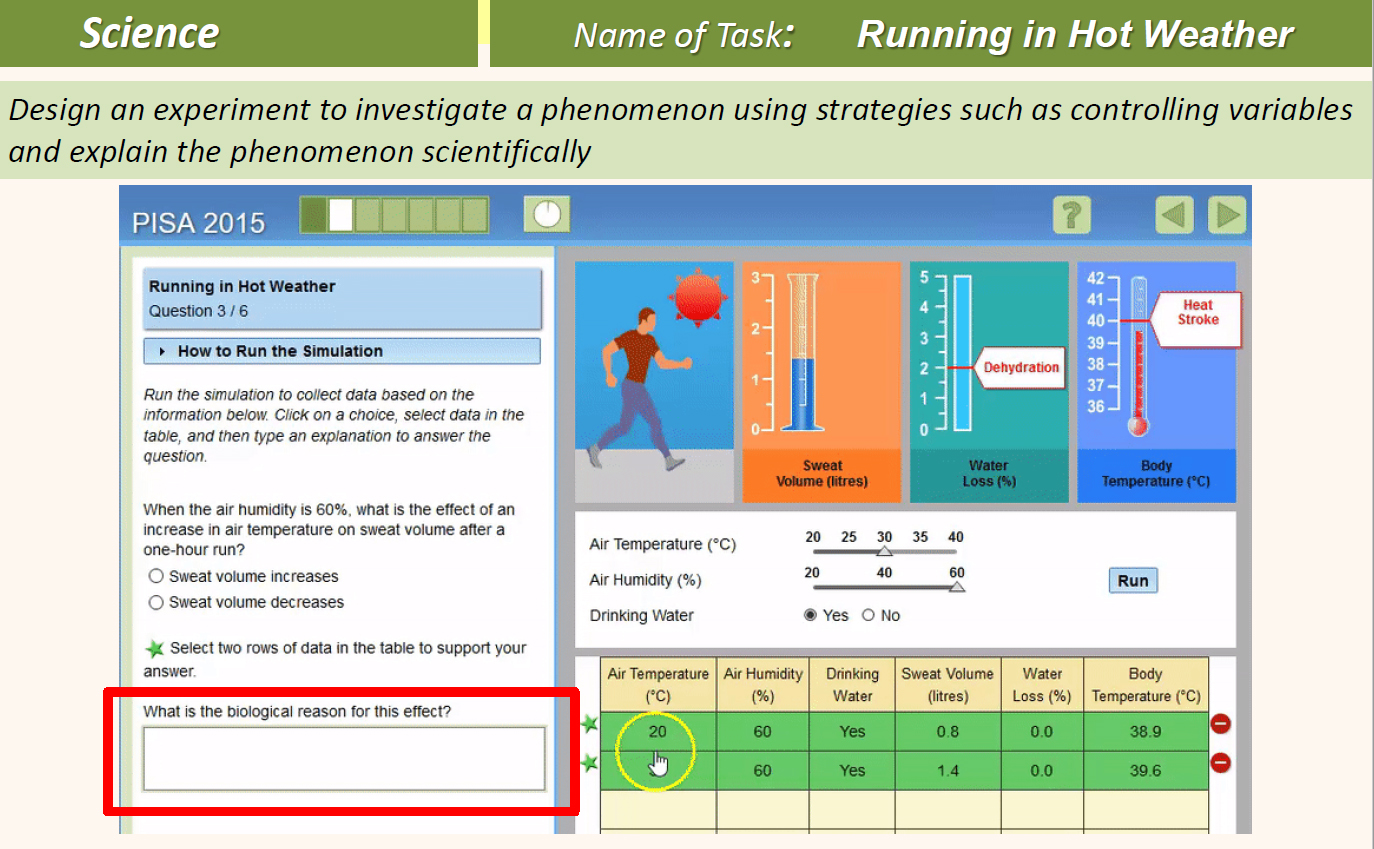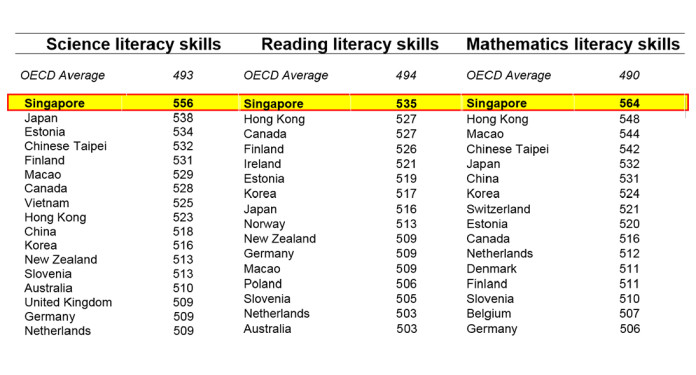SINGAPORE: For the first time, Singapore took first place in all three categories – reading, mathematics and science – in the Programme for International Student Assessment (PISA), marking its best performance yet in the global benchmarking test.
The study – conducted once every three years and co-ordinated by the Organisation for Economic Co-operation and Development (OECD) – measures how well 15-year-olds around the world make use of their knowledge to solve problems. Results of the tests were released on Tuesday (Dec 6), and this comes a week after Singapore students in Primary 4 and Secondary 2 topped another international ranking in mathematics and science.
A total of 72 economies took part in the assessment in 2015, which focused mainly on science. Shanghai, which took top spot in all three categories previously in 2012, was evaluated alongside other parts of China in PISA 2015.

Students were ranked following computer-based tests and questionnaires, and those in Singapore were found to be consistently strong in applying their knowledge and skills in unfamiliar real-life situations.
The Ministry of Education (MOE) said the results showed that its shift towards applied learning has been effective. The director-general of Education (Schools) at MOE, Low Khah Gek, said: “It shows that our students can think critically, can deal with unfamiliar, novel situations and problems, and are able to, in that sense, use their skills across different domains as they look at their problems. And they are also very comfortable in a computer environment.”

Sample PISA 2015 question
The study also revealed that students in Singapore have high levels of motivation to learn about science and that three in 10 of those students here expect to work in science-related occupations at age 30, significantly higher than most top-performing education systems.
Overall, the study found that Singapore’s education system provides opportunities for all to succeed, with its proportion of low performers standing at about 10 per cent in science, reading and mathematics – which was among the lowest in the study.
MOE said it is looking to learn from other countries, such as Portugal, on how they change their own pedagogy to suit their students.





